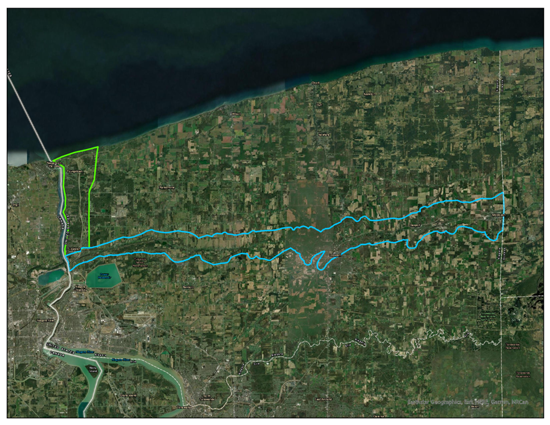Featured News - Current News - Archived News - News Categories
EPA seeking applications for up to $12 million in Brownfields Job Training Grants that ‘support local environmental job training programs and environmental workforce in underserved and overburdened communities’
Press Release
On Tuesday, the U.S. Environmental Protection Agency (EPA) announced the availability of approximately $12 million from President Joe Biden’s “Investing in America Agenda” for environmental job training grants under the fiscal year 2024 brownfields job training program. EPA is seeking applications for the program and anticipates awarding approximately 24 grants nationwide at amounts up to $500,000 per award. Applications are due by Aug. 2, via grants.gov. The request for application (RFA) notice is now posted on www.grants.gov.
“EPA’s brownfields program invests in communities, turning brownfield sites into new hubs of economic growth and creating new, good-paying jobs in communities where workers live,” said Barry Breen, acting assistant administrator of EPA’s office of land and emergency management. “Thanks to the boost from President Biden’s ‘Investing in America Agenda,’ the brownfields job training programs are not only providing an opportunity for residents impacted by brownfield sites to gain training and employment, but also advancing environmental justice across the country.”
The approximately $12 million in funding available during this grant cycle comes from the $1.5 billion investment from Biden’s “Bipartisan Infrastructure Law.” As a result of this funding, the EPA noted, fiscal year 2023 Brownfields Job Training Grant competition resulted in more than triple the funding compared to fiscal year 2022.
A press release stated, “This budget boost provides communities, states and Tribes the opportunity to apply for larger grants to build and enhance the environmental curriculum in job training programs to support job creation and community revitalization at brownfield sites.
“EPA is committed to meeting the Biden-Harris Administration’s Justice40 goal that 40% of the overall benefits of certain federal investments flow to disadvantaged communities. The brownfields program will strive to meet this commitment and advance environmental justice and equity considerations into all aspects of our work.”
The RFA notice is available at www.grants.gov. A copy of the FY24 guidelines and other application resources are available at EPA’s Brownfields Job Training (JT) Grants webpage. The office of brownfields and land revitalization will also host an outreach webinar from 1-3:30 p.m. ET on June 14 to explain the guidelines for interested applicants, and to address commonly asked questions. The link to attend the webinar is https://usepa.zoomgov.com/j/1603942069. Prior registration is not required.
Background
The EPA’s JT grant program is an employment and training program. The grants allow nonprofit and other eligible organizations to recruit, train and retain a local, skilled workforce by prioritizing unemployed and under-employed, including low-income individuals living in areas impacted by solid and hazardous waste in environmental jobs.
The press release stated, “Students learn the skills and credentials needed to secure full-time, sustainable employment in the environmental field, including brownfields assessment and cleanup. These jobs reduce environmental contamination and build more sustainable futures for communities.
“Communities have the flexibility to deliver eligible training that meets the local labor market demands of the environmental sector in their communities.
“Since 1998, EPA has awarded 400 job training grants. With these grants, more than 20,600 individuals have completed training, and over 15,300 individuals have been placed in careers related to land remediation and environmental health and safety.”
The next National Brownfields Training Conference will be held Aug. 8-11 in Detroit.
The press release noted, “Offered every two years, this conference is the largest gathering of stakeholders focused on cleaning up and reusing former commercial and industrial properties. EPA co-sponsors this event with the International City/County Management Association (ICMA).”





























